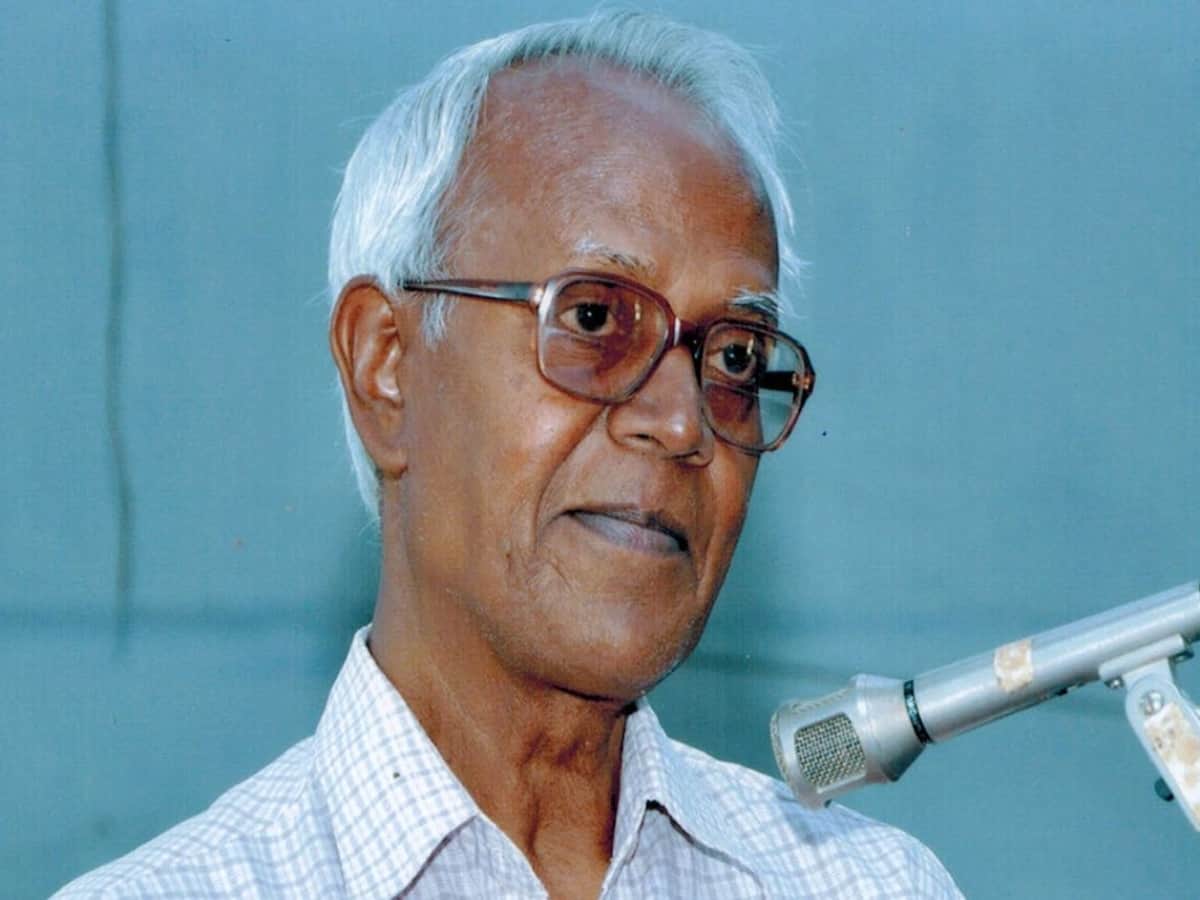Mumbai: 84-year-old tribal rights activist and Jesuit priest Father Stan Swamy, who was jailed for alleged Maoist connections and his role in inciting violence at Bhima Koregaon, passed away on Monday following COVID-related complications.
His last wish, however, remained unfulfilled.
“I would request the judiciary to consider my application for interim bail… My deterioration is more powerful than the small tablets that they give…This is a very difficult moment for me. Whatever happens to me, I would like to be with my own,” Father Stan had pleaded in a video conferencing call with the Bombay High Court after spending eight months at Taloja Central Prison on May 21, Live Law mentioned in a report.
In his last bail hearing in May, he predicted his death if he remained in jail. “I would rather die here very shortly if things go on as it is,” Swamy told the judges.
Hospital admission was the only option for the country’s oldest prisoner arrested in a terror case. The court allowed his admission into Holy Family hospital, where he breathed his last following a cardiac arrest on Monday.
Letters of hope
In Taloja jail, Stan Swamy frequently wrote to his acquaintances about the conditions he was lodged at. He often wrote not of his sufferings, but of the plight of other under-trials and how he has been a deriving inspiration from their spirit of solidarity.
In January, to mark 100 days in jail, Swamy penned a letter thanking all those who had stood by him. He said he had not met the 15 other people accused along with him, despite being in the same jail. Life in jail is on a day-to-day basis, he added.
“But we still sing in chorus. A caged bird can still sing,” he wrote. He said that he found strength in solidarity, especially ‘when only thing certain in prison is uncertainty.’
In another letter, he wrote: “Many of such poor undertrials don’t know what charges have been put on them, have not seen their charge sheet and just remain in prison for years without any legal or other assistance.”
“Overall, almost all undertrials are compelled to live to a bare minimum, whether rich or poor. This brings in a sense of brotherhood and communitarianism where reaching out to each other is possible even in this adversity,” he concluded.
In a letter written in November last, Swamy gave insights into his life in prison and how his inmates have been assisting him.
“Please remember my inmates and my colleagues in your prayers. Despite all odds, humanity is bubbling in Taloja prison,” the Parkinson-affected Swamy wrote.
Father Stan’s life in prison
Father Stan struggled for his freedom and basic human facilities inside prison ever since the National Investigation Agency arrested him in the Bhima Koregaon – Elgar Parishad Case on October 8, 2020.
They filed a charge sheet against him and seven others, accusing them of having nexus with banned organization CPI (Maoist). Even though the NIA hadn’t sought his custody for interrogation for a single day, the agency went to great lengths to oppose and delay every application for release or even a house arrest.
Swamy was suffering from acute Parkinson’s, hearing loss, abdomen pain and lumbar spondylosis. Later when he was admitted into the Holy Family hospital, he tested positive for COVID-19 too.
On November 7, 2020, Father Stan filed an application seeking the bag seized from him at the time of his arrest as it had his familiar straw and sipper. His lawyers said he was finding it very difficult to hold a glass or cup as acute Parkinson’s made his hand tremor.
The NIA court took 20 days to respond to father Stan’s request. Instead, they got back saying they never seized the bag from him, and the application was rejected as being “devoid of merit.”
For a person who has been in the human rights arena, whose activism comprised empathy and service, a custodial death is not something Father Stan Swamy deserved.
In thick of the action, Father Swamy once said: “I am not a silent spectator, but part of the game and ready to pay the price whatever it may be.” And his passing reflects exactly that.

